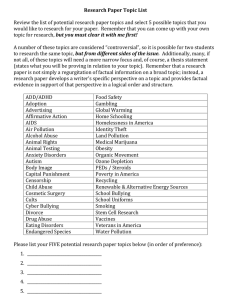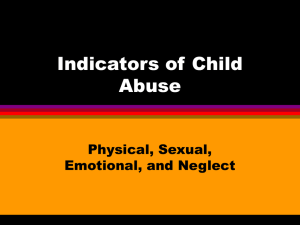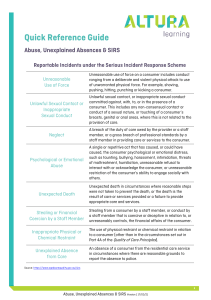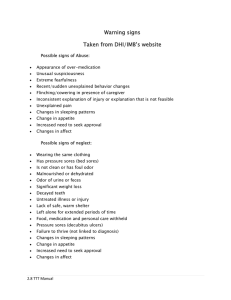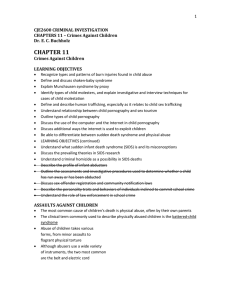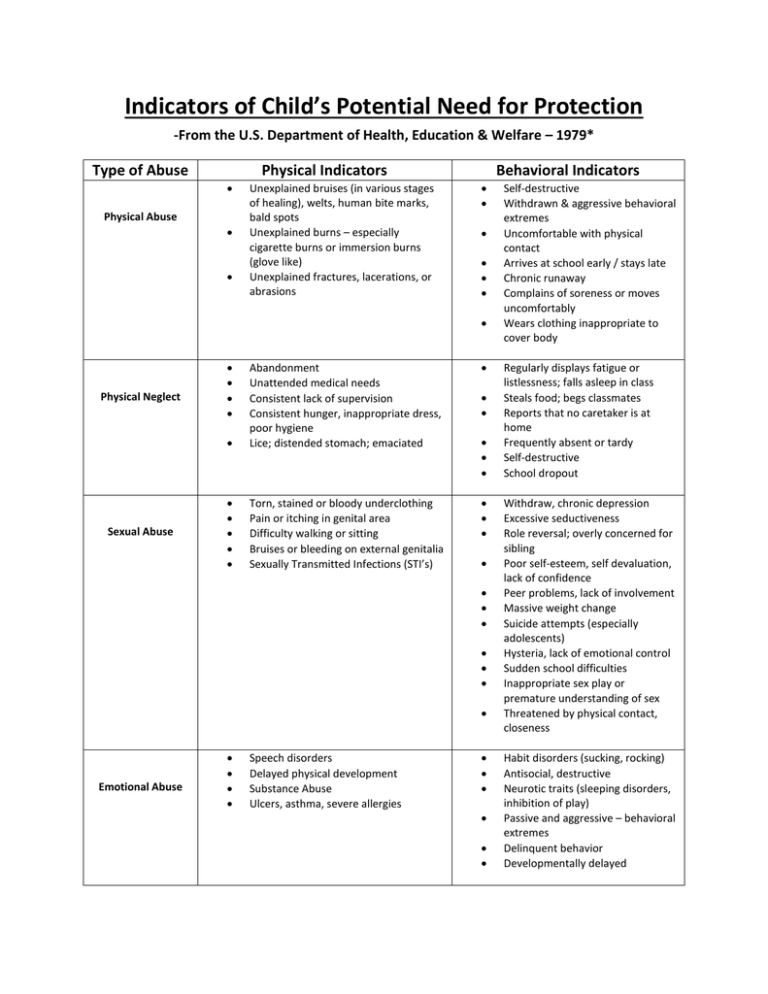
Indicators of Child’s Potential Need for Protection
-From the U.S. Department of Health, Education & Welfare – 1979*
Type of Abuse
Physical Indicators
Physical Abuse
Unexplained bruises (in various stages
of healing), welts, human bite marks,
bald spots
Unexplained burns – especially
cigarette burns or immersion burns
(glove like)
Unexplained fractures, lacerations, or
abrasions
Behavioral Indicators
Physical Neglect
Sexual Abuse
Abandonment
Unattended medical needs
Consistent lack of supervision
Consistent hunger, inappropriate dress,
poor hygiene
Lice; distended stomach; emaciated
Torn, stained or bloody underclothing
Pain or itching in genital area
Difficulty walking or sitting
Bruises or bleeding on external genitalia
Sexually Transmitted Infections (STI’s)
Emotional Abuse
Speech disorders
Delayed physical development
Substance Abuse
Ulcers, asthma, severe allergies
Self-destructive
Withdrawn & aggressive behavioral
extremes
Uncomfortable with physical
contact
Arrives at school early / stays late
Chronic runaway
Complains of soreness or moves
uncomfortably
Wears clothing inappropriate to
cover body
Regularly displays fatigue or
listlessness; falls asleep in class
Steals food; begs classmates
Reports that no caretaker is at
home
Frequently absent or tardy
Self-destructive
School dropout
Withdraw, chronic depression
Excessive seductiveness
Role reversal; overly concerned for
sibling
Poor self-esteem, self devaluation,
lack of confidence
Peer problems, lack of involvement
Massive weight change
Suicide attempts (especially
adolescents)
Hysteria, lack of emotional control
Sudden school difficulties
Inappropriate sex play or
premature understanding of sex
Threatened by physical contact,
closeness
Habit disorders (sucking, rocking)
Antisocial, destructive
Neurotic traits (sleeping disorders,
inhibition of play)
Passive and aggressive – behavioral
extremes
Delinquent behavior
Developmentally delayed



